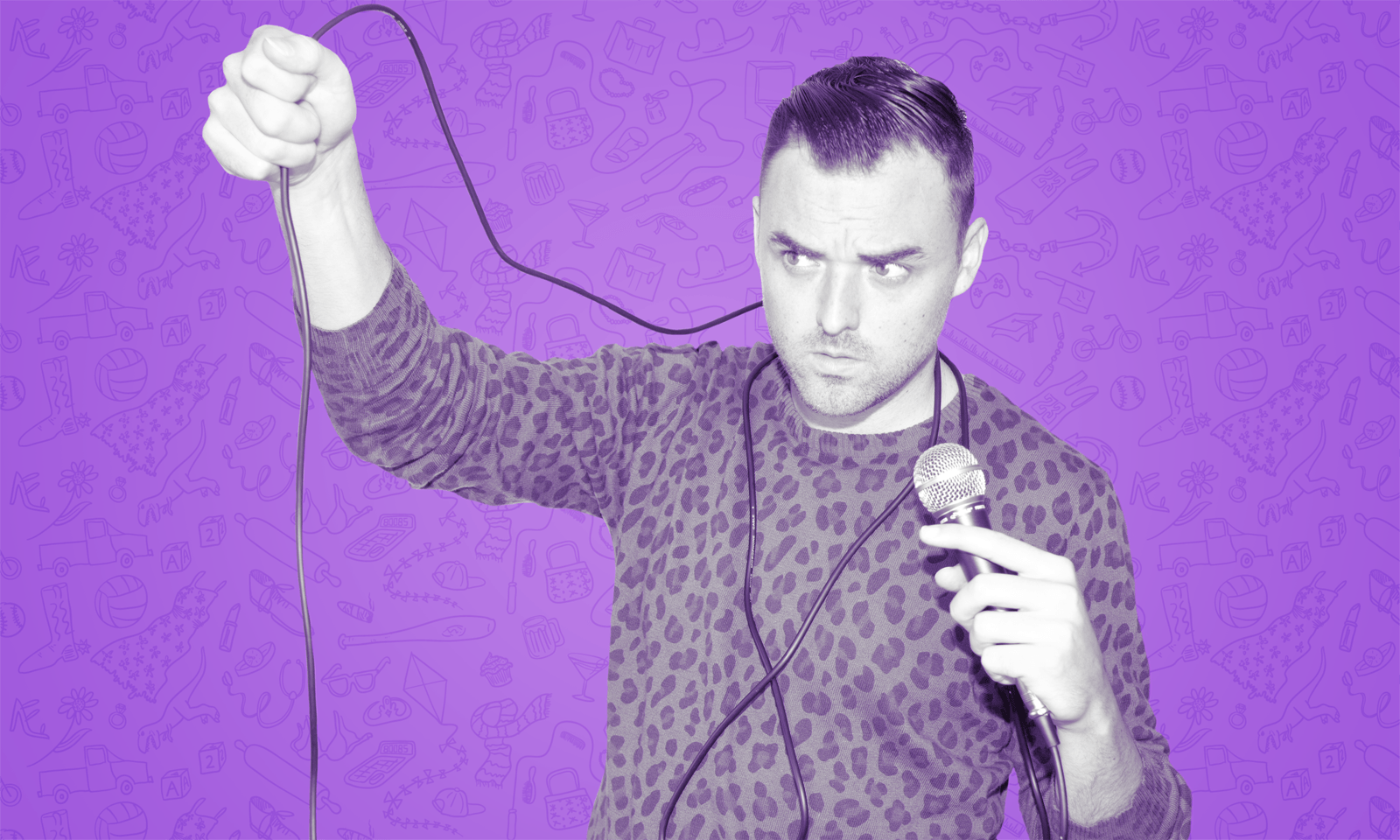SAYING YES AND HAVING FUN: THE BASIC SKILLS OF SOCIAL JUSTICE
BY: KEVIN SUTTON
It doesn’t matter which side of the movement you’re on. Whether you are the wide-eyed recipient of a dismissive jab, or the one with the shoe-leather tongue wondering what you did wrong, navigating the shifting world of social justice is tricky business. Treating everyone with dignity and respect seems like a simple thing in theory, but in practice, it becomes a minefield of eggshells, microaggressions and systemic discrepancies that leave some writhing in awkward guilt and others left feeling that their fundamental human rights have been violated. Meanwhile, both sides are at a loss for what to say next that won’t unleash a shitstorm of dismissive rhetoric and/or righteous rage.
THE TRICKY PART...
For the most part, none of us want to cause harm, inadvertent or not. Meanwhile, very few of us can handle getting called out. As well, none of us want to endure the backlash that comes along with calling out oppressive behaviour. Meanwhile, we can’t push the proverbial toothpaste back in the tube of historic social progress. It’s a brave new world, and we are still learning how to navigate its complexities.
We’re winging it, of course, muddling through as best we can. In spite of the clown car of hate politics, most of us would still like to get along with our neighbours no matter their race, colour, creed, gender, age, economic status, sexual orientation, gender expression, ability... but wow that’s a lot of identities to navigate. Not to mention that there’s obviously lots of overlap and conflicting theories about what is important to whom and why. So what if it’s less about being a perfect social justice automaton, and more about getting better at winging it? Instead of being an awkward mess of halting apologies and guilt-riddled denials, could getting along actually be...fun?
A BRIEF HISTORY OF IMPROV AND SOCIAL JUSTICE
Since you are reading this on The Making-Box website, you already know where this is going. And yes, although it does seem to be all-the-rage to tap the playfulness of improv theatre as the answer to everything from toxic work environments to mental well-being that’s only because, well, it works. In fact, improv theatre and social justice already have a rich history together. Not only have jesters and tricksters been poking holes in the facade of power since the beginning of civilized culture, but the association has been more formally asserted in the work of Augusto Boal and his Theatre of the Oppressed. Boal was famously able to shed light on the nature of modern tyranny by giving voice to the marginalized through a series of different improv forms, and has gone on to have a wide influence in not only theatre and social justice circles, but in other sectors that value and benefit from collaboration, and are willing to challenge the status quo.
More recently, Boal’s model has inspired groundbreaking programs that combine theatre, social justice, and other forms of conflict resolution into comprehensive practices. In 2004, Dr. Leticia Neito founded Acting for Change, an experimental improvisational theater company focused on anti-oppression. “Acting for Change is about embodying the work we too often limit to discussion. Instead of the oppressor or the oppressed, in Acting for Change we work with the mover/actor and the witness, attempting to be present, open, and available for movement and change. In Acting for Change, theater is a lab to liberate untapped resources and states of awareness to discover pathways for re-humanization.” Neito’s approach emphasizes a discovery of the authentic self beneath our layers of social conditioning. The work is embodied through movement rather than being intellectualized through discussion. Neito believes that dialoguing only scratches the surface of social justice work. “Let your body talk,” she says, “and we’ll have a revolution on our hands.”
But you don’t need a PhD to enjoy the benefits of improv in diversity and equity work. Comedian and activist, Sam Killermann, in his August article for the Safe Zone Project, “Mastering the “Yes, and..” Rule,” talks about how this simple rule of improv can lead to more positive learning spaces. “If someone presents a reality to you,” says Killermann, “however ridiculous it may seem, you accept it and build upon it, sometimes redirecting toward something you’re more comfortable with, and sometimes continuing down the rabbit hole they’ve created.” More simply, you don’t tell someone no. You respond “Yes, and…” And while Killermann isn’t advocating that anyone embrace hateful rhetoric, there’s value in being willing to listen and play along.
SO, NOW WHAT?
Let’s be honest, for all this talk of getting along, we know that we have a global history of violent oppression that is entrenched in all our current systems. There are numerous layers of systemic discrimination, targeted abuse, and toxic social attitudes that have to be unpacked as we attempt to cultivate authentic relationships that are equitable and just. We all have baggage from growing up socialized in institutions that normalize the exploitation and dehumanization of ourselves and the people around us. And it gets confusing when those learned behaviours clash with our social justice ideals. However, the goals of social justice are the same goals of any just society: that everyone be valued and respected for who they are. With this complicated drama as our lived reality, getting along can seem like the exact opposite of fun.
Dr. Neito’s insights are powerful. We can talk all we want, but much of the turmoil is happening under the surface. We are emotional beings, and our struggles are very much embodied in the fiber of our being. The impact of our behaviour is less about who we think we are and more about how we act in the moment. Getting along requires that we develop new habits that help us move beyond our conventional conditioning, embrace new ideas, and navigate unfamiliar territory. In other words, the basic skills of improv theatre.
In my own work as a diversity and equity workshop facilitator, I’ve seen these inner struggles play out as workshop participants struggle to accept difficult information about how their habitual behaviour can be problematic for their co-workers. I’ve seen it compound and become an unbearable emotional weight that has participants shutting down, even when they are invested in doing better. I’ve learned to better set them up for success by first guiding them to skills that will help them navigate new and difficult information. I’ve learned that they need a fresh way to approach the unknown that fosters a supportive professional environment. They need skills that help them get to “yes,” so that the people around them feel valued and supported. And they need it to be fun, so that getting along is less about checking social justice boxes and more about enjoying the people around you.
ABOUT THE AUTHOR:
Kevin Sutton is a writer, workshop facilitator and owner of Threshold. His work with business, organizations and government agencies has led him to equity and diversity work helping organizations nurture supportive professional environments where everyone is treated with dignity and respect.





